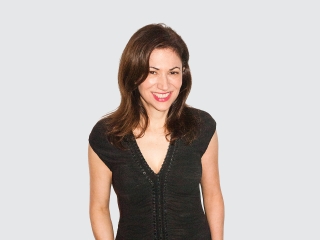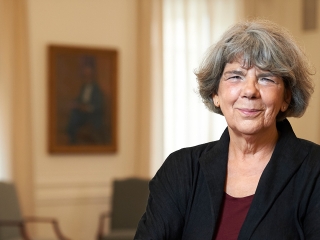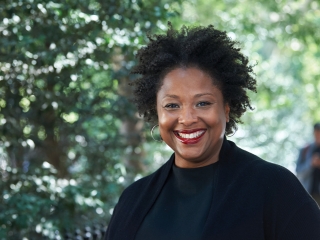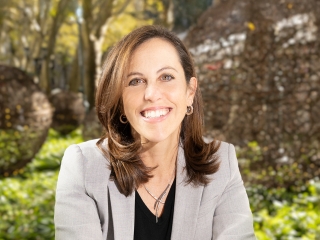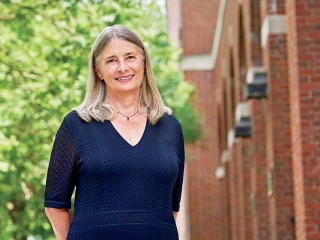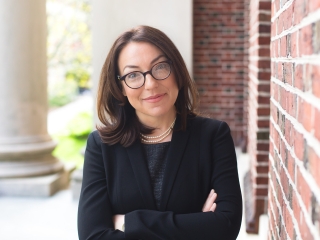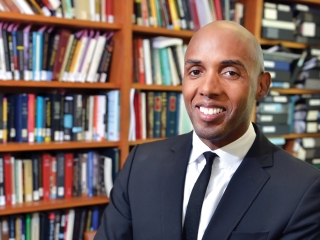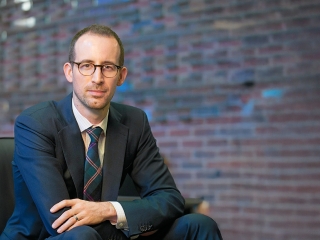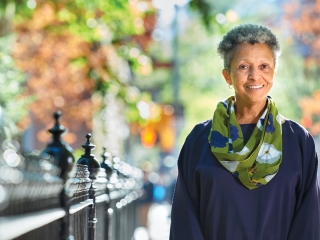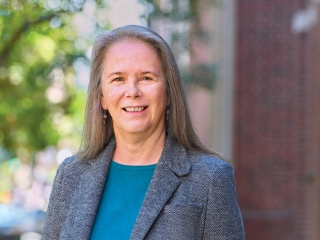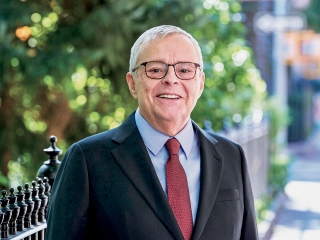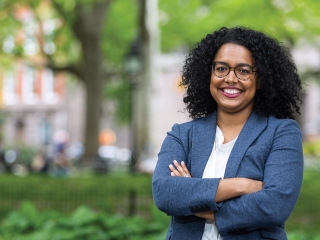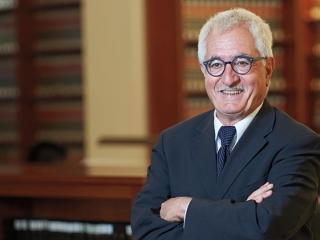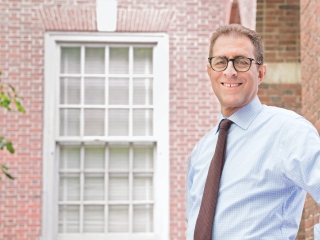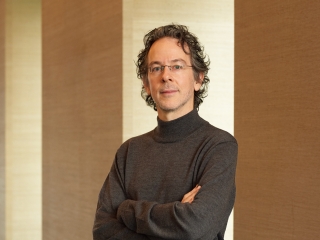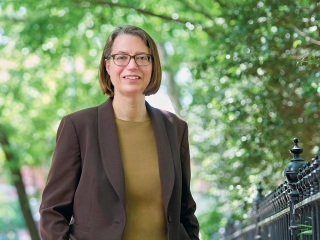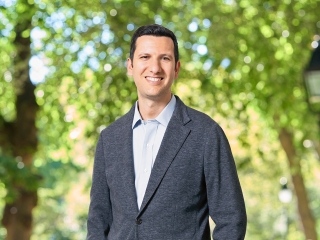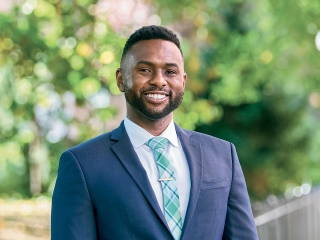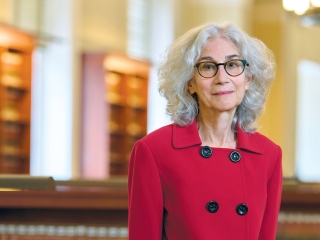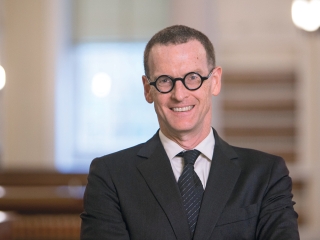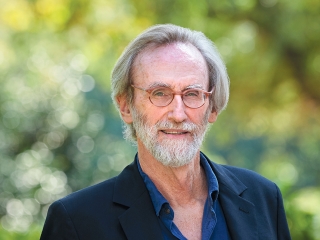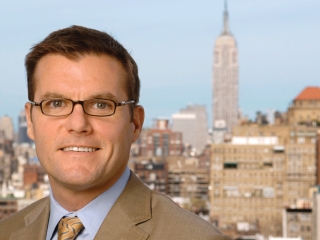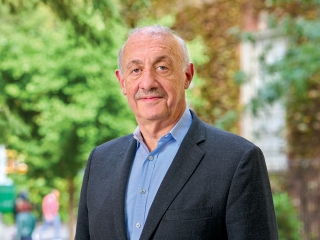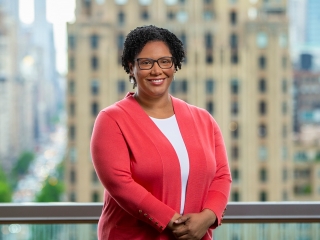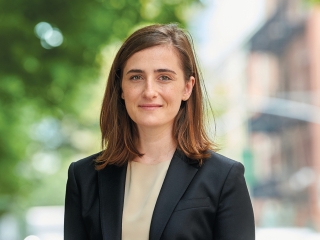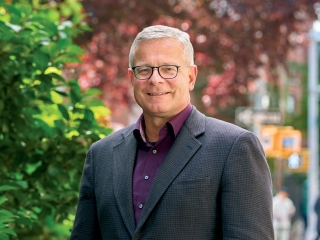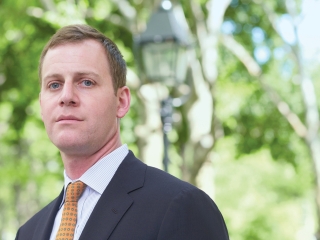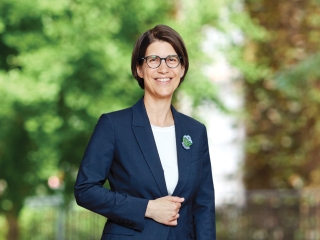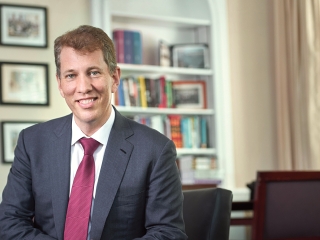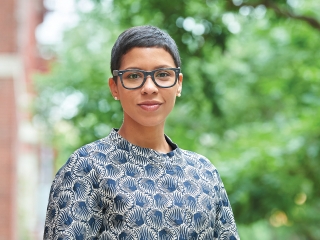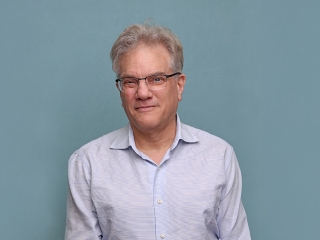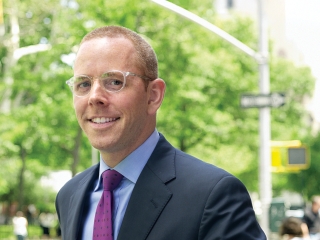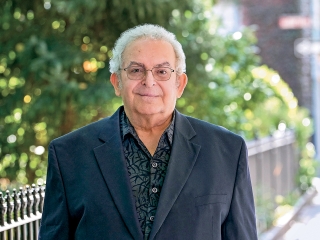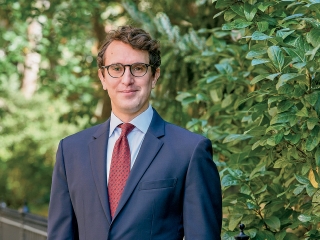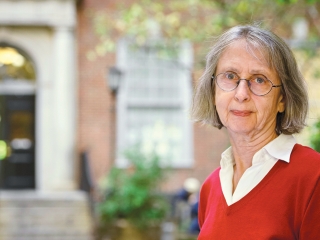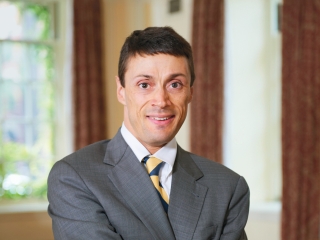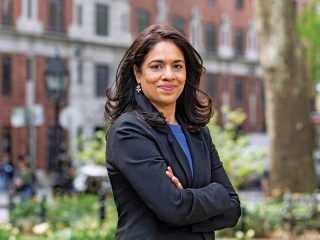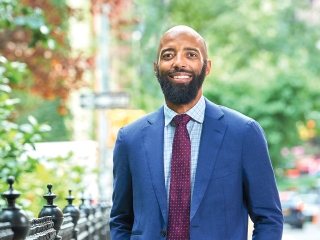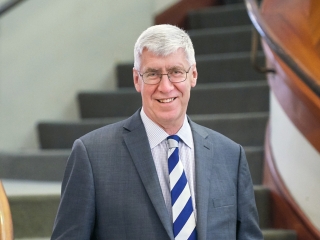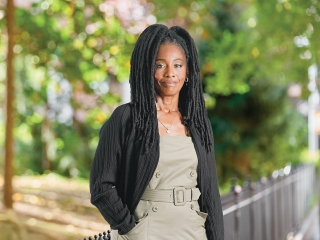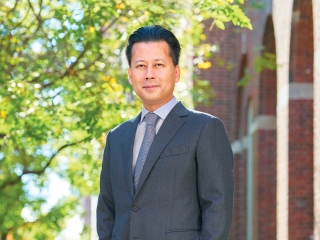Constitutional, Civil Rights, & Democracy
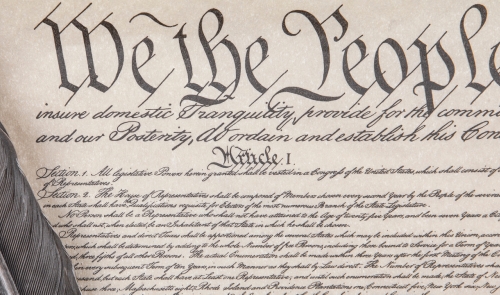
Overview
The curriculum features a vast array of offerings, from fundamental courses covering constitutional structure, rights, and interpretation, to seminars on presidential power and sex discrimination, to clinics on public policy, civil rights, and racial justice. NYU faculty have led the way in creating new areas of constitutional research and practice, like the Law of Democracy and International and Comparative Constitutionalism, and they have been among the most prominent voices on compelling questions of contemporary constitutionalism such as same-sex marriage and executive power in the post-9/11 world. Beyond their scholarship and teaching, many NYU faculty are actively engaged in constitutional litigation and in shaping public policy and debate, and a number have held high-level positions in government. Whatever their specific interests in constitutional law, NYU students will find multiple faculty members with experience, expertise, and enthusiasm to engage.
Additional opportunities for students interested in constitutional law abound. Student organizations like the American Constitution Society and the Federalist Society, along with journals like the Review of Law & Social Change and the Journal of Law and Liberty, facilitate lively intellectual debate about constitutional issues spanning the political spectrum. The Brennan Center for Justice, a powerhouse policy institute, involves NYU students in its research and litigation and host regular events with practitioners and legal scholars. The long-standing Arthur Garfield Hays Civil Liberties Program supports 3L students committed to civil liberties.
From topical reports examining the state of constitutional rights today, to events that feature insiders discussing critical issues such as national security, the intellectual life at the Law School offers a wealth of opportunities for exploring constitutional, civil rights, and democratic issues:
- Brennan Center for Justice
The Brennan Center for Justice is a nonpartisan law and policy institute that seeks to improve our systems of democracy and justice. The center’s work ranges from voting rights to campaign finance reform, from ending mass incarceration to preserving Constitutional protection in the fight against terrorism.
- Peter L. Zimroth Center on the Administration of Criminal Law
The Peter L. Zimroth Center on the Administration of Criminal Law analyzes important issues of criminal law, particularly focusing on prosecutorial power and discretion. It pursues this mission in three main arenas: academia, the courts, and public policy debates.
- Center for Law and Public Trust
The Center for Law and Public Trust at NYU School of Law works to reimagine US institutions so they are more effective and accountable to the American people, more resilient to corruption and abuse, and therefore more deserving of public trust.
- Center on Civil Justice
The Center on Civil Justice is dedicated to the study of the civil justice system in the United States and how it can continue to fulfill its purposes. The Center draws on the unmatched strengths of the NYU Law faculty in the fields of procedure and complex litigation, as well as on a Board of Advisers consisting of leading practitioners and Judges, to identify the problems that most deserve further investigation and engagement, and to fill a void in scholarly and policy analysis.
- Center on Race, Inequality, and the Law
The Center on Race, Inequality, and the Law was created to confront the laws, policies, and practices that lead to the oppression and marginalization of people of color. The Center is also committed to training the next generation of social justice advocates, and therefore serves as a resource to students and faculty alike to foster a healthy exchange of ideas on the ways in which race and inequality shape and inform the law.
- Classical Liberal Institute
The Classical Liberal Institute (CLI) examines how systems of property rights and contracts work to advance human welfare within a framework of limited government. CLI also co-sponsors the annual Friedrich A. von Hayek Lecture, which the NYU Journal of Law & Liberty publishes. Past topics have included administrative law, the constitution, and jurisprudence of new technology.
- Reiss Center on Law and Security
The Reiss Center on Law and Security is a non-partisan multidisciplinary research institute established in 2003 to focus on cultivating an informed dialogue and conducting groundbreaking research on the vital legal, policy, and strategic questions that will shape the national security field for years to come.
- Colloquium on Law, Economics, and Politics
The Colloquium on Law, Economics, and Politics investigates a wide variety of topics ranging from the foundations of rational choice theory (an inquiry important to the evaluation of the use of the theory in understanding law) to applications to questions of immediate interest.
- Institute of Judicial Administration
The Institute of Judicial Administration solidifies NYU Law’s status as a non-partisan resource for the judicial community. Faculty Co-Directors Oscar Chase and Samuel Estreicher oversee IJA programming including annual appellate judges training seminars, workshops on special topics in the law, and the annual William Brennan Jr. Lecture on State Courts and Social Justice.
- Just Security
Just Security is an online forum for the rigorous analysis of US national security law and policy that aims to promote principled and pragmatic solutions to national security problems that decision-makers face.
- Policing Project
The Policing Project is dedicated to strengthening policing through democratic governance. It is working with criminal justice experts, community members, the police, and many others to write model rules and policies for policing.
At NYU Law, students are encouraged to take advantage of all the Law School has to offer, from working directly with faculty on their research, to getting involved with our centers, to participating in clinics and student organizations. Here are some opportunities for those specifically interested in constitutional, civil rights, and democracy law:
- Student Groups and Journals
Student groups include the American Constitution Society and the Federalist Society. Journals include the Journal of Law & Liberty, the Review of Law and Social Change, and The International Society of Public Law (ICON·S).
- Arthur Garfield Hays Civil Liberties Program
The Arthur Garfield Hays Civil Liberties Program awards fellowships to a small group of third-year students committed to civil liberties and offers them special internships, usually two during the academic year, for civil liberties and other human rights organizations on litigation, legislation, and other legal assignments. Founded in 1958, the Hays Program is the first and principal program of its kind in the United States. The directors and fellows of the program have engaged in extensive research on civil liberties issues, participated in litigation and legislative work in cooperation with the ACLU and other organizations dedicated to individual rights, and undertaken special projects and conferences on topical constitutional issues. The program has trained close to 250 lawyers.
- Cybersecurity Law and Technology Scholarship
The Cybersecurity Law and Technology Scholarship aims to produce cybersecurity specialists who understand information-security issues from a multidisciplinary perspective. It provides a full-tuition law school scholarship for students interested in cyber and information security and dedicated to careers in state, local, or federal government.
- Academic Careers Program
The Academic Careers Program offers individual counseling, support, information, and special programming to those interested in teaching law. Among other opportunities, the program offers a scholarship clinic for members of the Law School community pursuing scholarship and publication, and a job camp allowing potential professors to present their work and practice interviewing.
- Furman Academic Scholars Program
The Furman Academic Scholars Program gives JD students an early start on a career path in legal teaching. Furman Academic Scholars, who receive full tuition and summer research funding, create individualized programs of study tailored to their intellectual interests.
- Furman Academic Fellowship Program
The Furman Academic Fellowship Program provides NYU Law graduates with a stipend, other material support, and time to produce a work of serious scholarship.
- Public Interest Law Center
The Public Interest Law Center offers a wide variety of funding opportunities and career planning programs to students and alumni, resulting in the most comprehensive public service infrastructure of any law school in the nation.
- Masters of Law LLM
The Masters of Laws LLM is designed for students who wish to take full advantage of NYU’s extraordinarily wide range of course offerings and the diverse research interests of our faculty. Unlike students in the specialized LLM programs, candidates pursuing the Masters of Law LLM degree are not limited to a specific number of classes in one field, and they have the freedom to choose courses that match their interests.
Faculty
Emily Kempin Professor of Law
Clinical Professor of Law
Externship Director
Margaret B. Hoppin Professor of Law
Associate Dean, Experiential Education & Clinical Programs
Director, Clinical & Advocacy Programs
Faculty Director, Community Equity Initiative
Charles Seligson Professor of Law
Faculty Director, Peter L. Zimroth Center on the Administration of Criminal Law
Judge Edward Weinfeld Professor of Law
Faculty Co-Director, Furman Center for Real Estate and Urban Policy
Moses H. Grossman Professor of Law
Elihu Root Professor of Law
Robert A. Kindler Professor of Law
John S. R. Shad Professor of Lawyering and Ethics
Director, Experiential Learning Lab
Crystal Eastman Professor of Law
Dwight D. Opperman Professor of Public Law
Director, Center for Labor and Employment Law
Director, Institute of Judicial Administration
Assistant Professor of Law
Samuel Tilden Professor of Law Emeritus
Jacob D. Fuchsberg Professor of Law
Hiller Family Foundation Professor of Law
Assistant Professor of Law
Director, Family Defense Clinic
Professor of Law
Professor of Law
Herbert M. and Svetlana Wachtell Professor of Constitutional Law and Civil Liberties
Co-Director, Arthur Garfield Hays Civil Liberties Program
William T. Comfort, III Professor of Law
Walter E. Meyer Professor of Law
Russell D. Niles Professor of Law
Bonnie and Richard Reiss Professor of Constitutional Law
Professor of Law
Sarah Herring Sorin Professor of Law
Inge Rennert Professor of Law
David Boies Professor of Law
Samuel Tilden Professor of Law, and Professor of Philosophy
Eric M. and Laurie B. Roth Professor of Law
Dean Emeritus
Frederick I. and Grace Stokes Professor of Law
Faculty Director, Birnbaum Women’s Leadership Center
Sudler Family Professor of Constitutional Law
Professor of Law
Edwin D. Webb Professor of Law
Associate Professor of Law
Clinical Professor of Law
Inez Milholland Professor of Civil Liberties
Professor of Practice
Faculty Director, Rule of Law Lab
Associate Professor of Law
Director, Center on Race, Inequality, and the Law
Professor of Law
University Professor
Professor of Law
Chief Justice Earl Warren Professor of Constitutional Law
Featured News

A Fuller Picture
Daniel Harawa argues for considering race in Fourth Amendment search-and-seizure cases.
My NYU Law
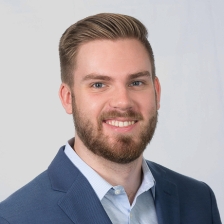
Austin Upshaw ’25
“I took NYU Law’s Colloquium on Constitutional Theory, and it was unlike any course I had ever taken. Each week we would read an unreleased piece by a legal scholar—either a paper they were working on or a draft of a chapter from an upcoming book. And then that scholar would join our class for a two-hour workshop, where the floor would be open for us to ask questions about their work and dive deep into their ideas.”
Areas of Study
Get a sense of our academic specialties and the faculty that teach them—as well as the centers, colloquia, lectures, and student organizations that underscore them.
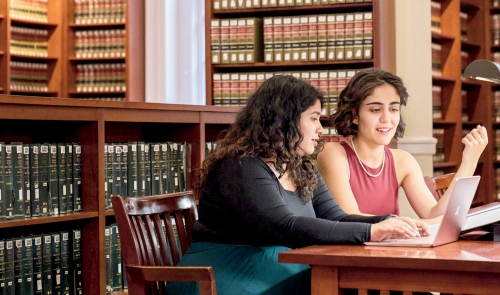
- Antitrust, Intellectual Property, & Information
- Cities & Land Use
- Constitutional, Civil Rights, & Democracy
- Corporate & Commercial Law
- Criminal Justice
- Environmental
- Family, Gender, & Sexuality
- Global & International
- Human Rights
- Immigration
- Labor & Employment
- Law and Security
- Legal Theory, History, & the Social Sciences
- Litigation & Procedure
- Regulation & Public Policy
- Taxation


